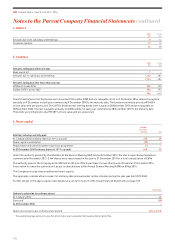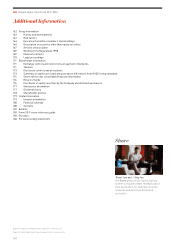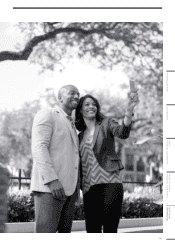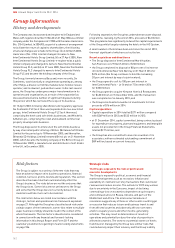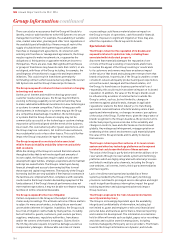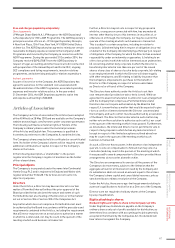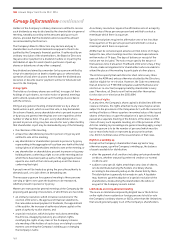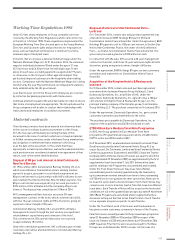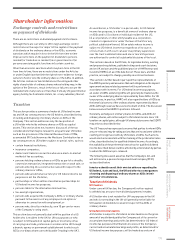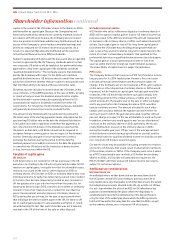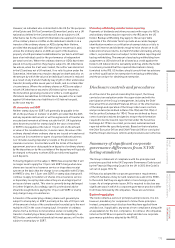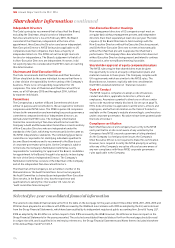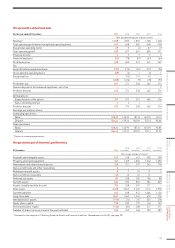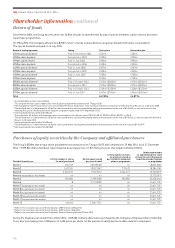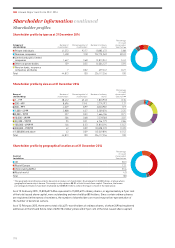Holiday Inn 2014 Annual Report Download - page 170
Download and view the complete annual report
Please find page 170 of the 2014 Holiday Inn annual report below. You can navigate through the pages in the report by either clicking on the pages listed below, or by using the keyword search tool below to find specific information within the annual report.
Holders of the Company’s ordinary shares are entitled to receive
such dividends as may be declared by the shareholders in general
meeting, rateably according to the amounts paid up on such
shares, provided that the dividend cannot exceed the amount
recommended by the Directors.
The Company’s Board of Directors may declare and pay to
shareholders such interim dividends as appear to them to be
justified by the Company’s financial position. If authorised by an
ordinary resolution of the shareholders, the Board of Directors
may also direct payment of a dividend in whole or in part by the
distribution of specific assets (and in particular of paid-up
shares or debentures of any other company).
Any dividend unclaimed by a member (or by a person entitled by
virtue of transmission on death or bankruptcy or otherwise by
operation of law) after six years from the date the dividend was
declared, or became due for payment, will be forfeited and will
revert to the Company.
Voting rights
The holders of ordinary shares are entitled, in respect of their
holdings of such shares, to receive notice of general meetings
and to attend, speak and vote at such meetings in accordance
with the Articles.
Voting at any general meeting of shareholders is by a show of
hands unless a poll, which is a written vote, is duly demanded.
On a show of hands, every shareholder who is present in person
or by proxy at a general meeting has one vote regardless of the
number of shares held. On a poll, every shareholder who is
present in person or by proxy has one vote for every share held by
that shareholder. A poll may be demanded by any of the following:
• the chairman of the meeting;
• at least five shareholders present in person or by proxy and
entitled to vote at the meeting;
• any shareholder or shareholders present in person or by proxy
representing in the aggregate not less than one-tenth of the total
voting rights of all shareholders entitled to vote at the meeting; or
• any shareholder or shareholders present in person or by proxy
holding shares conferring a right to vote at the meeting and on
which there have been paid up sums in the aggregate at least
equal to one-tenth of the total sum paid up on all the shares
conferring that right.
A proxy form will be treated as giving the proxy the authority to
demand a poll, or to join others in demanding one.
The necessary quorum for a general meeting is three persons
carrying a right to vote upon the business to be transacted,
whether present in person or by proxy.
Matters are transacted at general meetings of the Company by the
proposing and passing of resolutions, of which there are two kinds:
• an ordinary resolution, which includes resolutions for the
election of Directors, the approval of financial statements,
the cumulative annual payment of dividends, the appointment
of the auditor, the increase of authorised share capital or the
grant of authority to allot shares; and
• a special resolution, which includes resolutions amending
the Articles, disapplying statutory pre-emption rights,
modifying the rights of any class of the Company’s shares
at a meeting of the holders of such class or relating to certain
matters concerning the Company’s winding up or changing
the Company’s name.
An ordinary resolution requires the affirmative vote of a majority
of the votes of those persons present and entitled to vote at a
meeting at which there is a quorum.
Special resolutions require the affirmative vote of not less than
three quarters of the persons present and entitled to vote at a
meeting at which there is a quorum.
AGMs must be convened upon advance written notice of 21 days.
Subject to law, other meetings must be convened upon advance
written notice of 14 days. The days of delivery or receipt of the
notice are not included. The notice must specify the nature of
the business to be transacted. The Board of Directors may, if they
choose, make arrangements for shareholders who are unable to
attend the place of the meeting to participate at other places.
The Articles specify that each Director shall retire every three
years at the AGM and, unless otherwise decided by the Directors,
shall be eligible for re-election. However, the Code recommends
that all directors of FTSE 350 companies submit themselves for
election or re-election (as appropriate) by shareholders every
year. Therefore, all Directors will retire and offer themselves
for election or re-election at the 2015 AGM.
Variation of rights
If, at any time, the Company’s share capital is divided into different
classes of shares, the rights attached to any class may be varied,
subject to the provisions of the Companies Act, with the consent in
writing of holders of three-quarters in nominal value of the issued
shares of that class or upon the adoption of a special resolution
passed at a separate meeting of the holders of the shares of that
class. At every such separate meeting, all of the provisions of the
Articles relating to proceedings at a general meeting apply, except
that the quorum is to be the number of persons (which must be
two or more) who hold or represent by proxy not less than
one-third in nominal value of the issued shares of that class.
Rights in a winding-up
Except as the Company’s shareholders have agreed or may
otherwise agree, upon the Company’s winding up, the balance
of assets available for distribution:
• after the payment of all creditors including certain preferential
creditors, whether statutorily preferred creditors or normal
creditors; and
• subject to any special rights attaching to any class of shares,
is to be distributed among the holders of ordinary shares
according to the amounts paid up on the shares held by them.
This distribution is generally to be made in cash. A liquidator
may, however, upon the adoption of a special resolution of the
shareholders, divide among the shareholders the whole or
any part of the Company’s assets in kind.
Limitations on voting and shareholding
There are no limitations imposed by English law or the Articles
on the right of non-residents or foreign persons to hold or vote
the Company’s ordinary shares or ADSs, other than the limitations
that would generally apply to all of the Company’s shareholders.
168
IHG Annual Report and Form 20-F 2014
continuedGroup information


